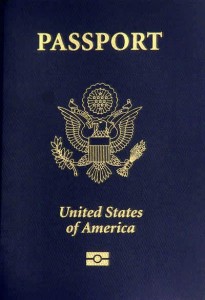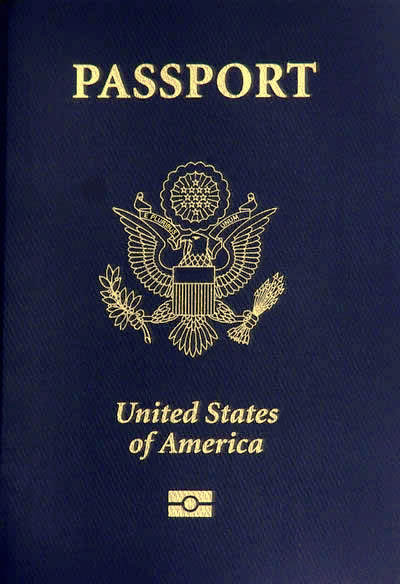 A trip requires careful planning. Listed below are important steps you can take to prepare for a safe trip anywhere outside the United States.
A trip requires careful planning. Listed below are important steps you can take to prepare for a safe trip anywhere outside the United States.
In addition, you can search for your destination to view more specific information about that country or area.
Getting There
Be Aware of Any Travel Alerts and Warnings for Your Destination
The State Department issues Travel Warnings to recommend postponing travel to a country because of widespread civil unrest, dangerous conditions, terrorist activity or, in some cases, because the U.S. has no diplomatic relations with the country and may have great difficulty in assisting U.S. citizens in distress. Travel Alerts disseminate information quickly about terrorist threats or other relatively short-term or transnational conditions that could pose significant risks to you and affect your travel plans. U.S. embassies and consulates send out security or emergency messages to alert U.S. citizens to fast-breaking events, such as demonstrations, coups, approaching storms, and crime.
The Department of State urges U.S. citizens living overseas or planning to travel abroad to enroll in the Smart Traveler Enrollment Program (STEP). When you enroll in STEP, they can update you with important safety and security announcements. Enrolling will also make it easier for the embassy or consulate to contact you in the event of an emergency. You should remember to keep all of your information in STEP up to date; it is particularly important when you enroll or update your information to include a current phone number and e-mail address.
Do You Have All Required Travel Documents?
Most U.S. citizens must use a U.S. passport to travel overseas and reenter the United States. A passport is an internationally recognized travel document that verifies your identity and citizenship. Only the U.S. Department of State has the authority to issue U.S. passports.
Most foreign countries require a valid passport to enter and leave. Some countries may allow you to enter with only a birth certificate, or with a birth certificate and a driver’s license, but all persons, including U.S. citizens, traveling by air, must present a valid passport to reenter the United States.
If you are traveling by land or sea, you must provide evidence of both your U.S. citizenship and your identity when you reenter the United States. For many land or sea trips this means you can travel using the new U.S. passport card instead of the normal passport book. Read more about U.S. passport requirements.
What about your children? Some countries have instituted requirements to help prevent child abductions and may require travelers to present proof of relationship to the children and evidence of consent from any non-accompanying parent(s).
When does your passport expire? Some countries require that a traveler’s passport be valid for at least six months beyond the dates of the trip. Contact the embassy of your foreign destination for more information. Foreign embassy and consulate contact information can also be found the Country Specific Information pages at the State Department.
Are You Prepared for an Emergency?
Make sure you have the contact information for the nearest U.S. Embassy or Consulate where you are going. Consular duty personnel are available for emergency assistance 24 hours a day, 7 days a week, at U.S. embassies, consulates, and consular agencies overseas and in Washington, D.C. Contact information for U.S. embassies, consulates, and consular agencies overseas may be found in our Country Specific Information pages.
If your family needs to reach you because of an emergency at home or if they are worried about your welfare, they should call the Office of Overseas Citizens Services in Washington, D.C. at 1-888-407-4747 (during business hours) or 202-647-5225 (after hours). The State Department will relay the message to the consular officers in the country where you are. The consular officers will then try to locate you, pass on any urgent messages, and, if you wish, report back to your family on your welfare.
You can read more about what the Department of State can and can’t do for you in an emergency here.
Do You Plan to Drive Overseas?
If you plan to drive overseas, you may need to obtain an International Driving Permit (IDP). Many countries do not recognize U.S. driver’s licenses without an accompanying IDP, and it is illegal to drive without a valid license and insurance in most places. You should check with the embassy of the country where you plan to travel to find out more about driver’s license and car insurance requirements.
If you will be residing overseas for an extended time, it is a good idea to obtain a local driver’s license as soon as possible, since IDPs have a limited validity.
Foreign countries may also require that persons considered resident obtain a local driver’s license if they are going to drive. To renew a U.S. driver’s license while abroad, contact the Department of Motor Vehicles in your home state.
For more information, please review the page on Driving Abroad.
Pack Smart!
- Pack light so you can move more quickly and have a free hand when you need it.
- Carry a minimum number of valuables and plan places to conceal them.
- Check your bags, clothing, and vehicle to make sure you are not carrying any banned items or substances, such as weapons or ammunition, into your destination country. Use covered luggage tags to avoid casual observation of your identity and nationality.
- Avoid packing IDs, tickets and other vital documents in backpacks or other locations you won’t be able to see at all times.
Do you have a phone?
Not all cell phones will work in every country and the USA tends to make international phone use very difficult. In fact, it took a new law to get our carriers to loosen up.
Check before you go abroad whether your phone will work in the places you’re traveling. Remember it’s going to be expensive. Talk to your carrier and have them explain the costs in full before you go. Tell them which countries you are going to and have them approve your phone for use in those regions.
If you have a smartphone or tablet you might consider turning off roaming and cellular data and just using your phone on wi-fi for communicating with people back home. Use Facebook Messenger or download the free Group Me app.
If it’s essential you have a phone and not a mini-computer, I can recommend buying a spare, cheap unlocked phone. I have a cheap Samsung Galaxy that I bought overseas and use with a locally-sourced SIM card in European and Middle Eastern countries. This does not hold my Contacts so I have a notebook with essential numbers, and use the Contacts from my US phone as a directory. As it’s a smartphone I can also use it for email when I get wifi and if I buy data from the local carrier. It also acts as a hotspot for my US phone if I want to contact people by email from my usual phone or laptop.
You can buy and install a local SIM (subscriber identification module) memory chip that will work in the country you’re visiting. There are ads for them everywhere, and they can be very cheap depending upon what service you buy. “Topping up” your account is generally done through a #Text code that links to an online account linked to your credit card. This is password protected so you don’t lose out if you lose your phone.
A SIM card stores information like your identity, local cell phone number, address book information, and other bits of data. SIMs must be activated. Most retailers will do this for you when you purchase the SIM, or you can activate it online.
When you put a local SIM chip in your phone, it’s like getting a brand new phone, so it won;t have any stored data. It will remember any numbers and email addresses you add to it. To avoid identity theft issues, don’t enter too much personal information if you purchased an off-brand SIM card!
Many phones are locked (the latest iPhone 6s are not, that’s what the slot on the side is for) meaning you cannot remove the SIM card. Contact your service carrier about getting your phone unlocked. Once it’s unlocked you’ll be able to access other mobile carrier networks around the world.
Not all phone companies will unlock all types of phones. There may be rules about length of service or balance of account.
 If you’ve tried to unlock your phone in the past but were told by your carrier that you couldn’t, try again. A new Consumer Code for Wireless Service came into effect in 2014. Learn more about unlocking a phone or tablet from the Federal Communications Commission.
If you’ve tried to unlock your phone in the past but were told by your carrier that you couldn’t, try again. A new Consumer Code for Wireless Service came into effect in 2014. Learn more about unlocking a phone or tablet from the Federal Communications Commission.
Do you have a power adaptor
Electrical outlets in the U.S. output between 100-120V, while many other countries output between 200-240V. Not all gadgets require a voltage converter, though—you may be able to get by with just a simple plug adapter.
A plug adapter will allow you to use your device without the need to convert electricity, but the charger has to be rated at both voltages. If your device doesn’t support dual voltages, you’ll need a converter. The plug for your charger should tell you if it’s able to work at both voltages. The charger on my phone, for example, reads “Input: 100-240V AC.” That means I can use it in practically any country without a voltage adapter.
Get one that’s good for everywhere. It’s only about $12 off Amazon. Get one that:
- contains 4 international plugs to cover: United States, Canada, Europe, Middle East, South America, Asia, The Carribean, Great Britain, Ireland, Africa, Hong Kong, Singapore, Australia, Fiji, New Zealand, China, Japan, and more than 150 countries.
- has a built-in surge protector that accommodates grounded and ungrounded plugs
- modifies the electrical outlet, it does not change the voltage, supports universal voltage 110V-240V
Do You Have Photocopies of Your Itinerary and Travel Documents?
Make two photocopies of all your travel documents in case of emergency or if your documents are  lost or stolen. Leave one copy with a friend or relative at home. It is always a great idea to let at least one person know exactly where you will be staying and how to contact you in an emergency. Carry the other copy with you stored separately from the originals. Documents to make copies of include:
lost or stolen. Leave one copy with a friend or relative at home. It is always a great idea to let at least one person know exactly where you will be staying and how to contact you in an emergency. Carry the other copy with you stored separately from the originals. Documents to make copies of include:
- Passport ID page
- Foreign visa (if applicable)
- Itinerary
- Hotel confirmation
- Airline ticket
- Driver’s license
- Credit cards brought on the trip
- Traveler’s check serial numbers
Global Entry
Your time is valuable. As a pre-screened Global Entry member, you arrive in the United States, check-in at the Global Entry kiosk and you’re on your way.
Why You Should Join
No processing lines
No paperwork
Access to expedited entry benefits in other countries
Available at major U.S. airports
Reduced wait times
TSA Pre✓® Eligibility
Global Entry is a U.S. Customs and Border Protection (CBP) program that allows expedited clearance for pre-approved, low-risk travelers upon arrival in the United States. Members enter the United States through automatic kiosks at select airports. It costs $100.
At airports, program members proceed to Global Entry kiosks, present their machine-readable passport or U.S. permanent resident card, place their fingerprints on the scanner for fingerprint verification and complete a customs declaration. The kiosk issues the traveler a transaction receipt and directs the traveler to baggage claim and the exit.
Travelers must be pre-approved for the Global Entry program. All applicants undergo a rigorous background check and in-person interview before enrollment. (It’s a quick interview.)
While Global Entry’s goal is to speed travelers through the process, members may still be selected for further examination when entering the United States. Any violation of the program’s terms and conditions will result in the appropriate enforcement action and termination of the traveler’s membership privileges.
Prepare to Handle Money Overseas
Check and understand the exchange rate before you travel.
- Before you leave, notify your bank, credit card company, or other financial institutions that you are going overseas.
- Avoid carrying cash and consider using traveler’s checks or major credit cards instead (but make sure they are accepted at your destination before departing on your trip).
- Change traveler’s checks only as you need them.
- Do not flash large amounts of money when paying a bill.
Learn about local laws and customs
While traveling, you are subject to the local laws even if you are a U.S. Citizen. Foreign laws and legal systems can be vastly different from our own and it is very important to know what’s legal and what’s not. If you break local laws while abroad, your U.S. passport won’t help you avoid arrest or prosecution, and the U.S. Embassy cannot get you out of jail.
Your Health
Do You Need Any New Vaccinations? Vaccinations Are Required for Entry to Some Countries
Some countries require foreign visitors to carry an International Certificate of Vaccination (aka Yellow Card) or other proof that they have had certain inoculations or medical tests before entering or transiting their country. Before you travel, check the Country Specific Information and contact the foreign embassy of the country to be visited or transited through for currenty entry requirements.
Health Experts Recommend Vaccinations for Travel to Some Countries
The U.S. Centers for Disease Control (CDC) can provide you their recommendations for vaccinations and other travel health precautions for your trip abroad.
Do You Know How to Find Medical Help Abroad?
Get Help With a Medical Emergency Abroad:
View ALL information about Your Health Abroad
Does Your Health Insurance Cover You Outside the U.S.?
Learn what medical services your health insurance provider will cover overseas. Although some health insurance companies will pay “customary and reasonable” hospital costs abroad, very few will pay for a medical evacuation back to the United States, which can easily cost up to $100,000, or even more, depending on your condition and location. Regardless of whether your insurance is valid overseas, you may be required to pay for care when you receive it.
If your insurance policy does not cover you abroad, consider purchasing a short-term policy that does. Many travel agents and private companies offer insurance plans that will cover health care expenses incurred overseas including emergency services such as medical evacuations.
NOTE: Social Security and Medicare do not provide coverage outside of the U.S.
Are You Taking Any Prescriptions or Other Medications?
If you take prescription medication:
- Pack enough to last your entire trip, including some extra in case you are unexpectedly delayed.
- Carry your medications in their original labeled containers, and pack them in your carry-on bag since checked baggage is occasionally lost or delayed.
- Ask your pharmacy or physician for the generic equivalent name of your prescriptions in case you need to purchase additional medication abroad.
- Get a letter from your physician in case you are questioned about your carry-on medication; some countries have strict restrictions on bringing prescription or even non-prescription medications into the country without proper medical documentation.

